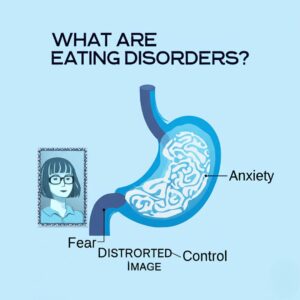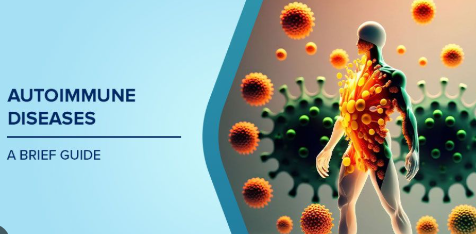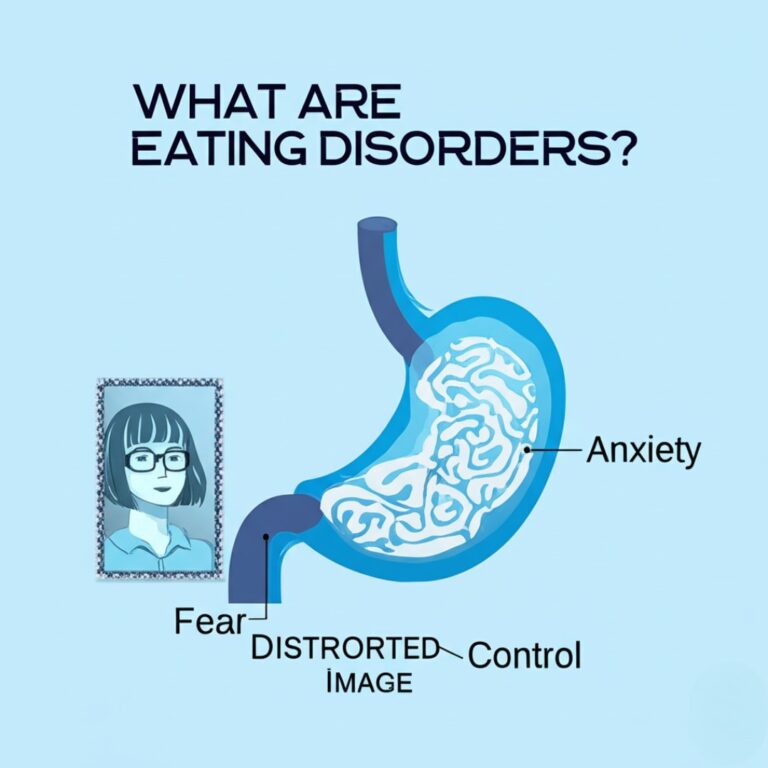Diseases make thousands of people all around the world face the challenge of themselves and their health systems. Understand these basic concepts about diseases: Their nature, causes, symptoms, preventions, and treatments. This empowers the wellness promotion of human beings. This guide provides information about important disease categories and all the appropriate ways to manage them and prevent them from occurring.
What Are Diseases?
Diseases are abnormal conditions for the body of an organism affecting its structure or function. They may be due to an externally introduced pathogen, genetic predispositions, or internal dysfunctions like failures of the immune system. The following groups of diseases are:

- Infectious Diseases: Such diseases which are formed by microorganisms include viruses, bacteria, fungi, or parasites: The human disease.
- Chronic Diseases: Diabetes will cause chronic conditions along with hypertension.
- Genetic Disorders: Heredity causes genetic mutation.
- Degenerative Diseases: Acquired from progressive wear and tear of tissues or organs.
- Autoimmune Disorders: Autoimmune disease for every self-attack of the organ.
This is understandable when it refers to the resources and forums through which everything works – the like of those found in DoctorHub360.com.
Neurological Diseases : A Closer Examination
Neurological disorders arise due to conditions concerning the central and peripheral nervous systems, and these conditions are primarily life-altering, considerably undermining both physical and psychological faculties.
Common Neurological Diseases
- Alzheimer’s Disease: Gradual memory loss with slow deterioration of cognitive functions associated with advancing age.
- Parkinson’s Disease: Several rather progressive movement disorders including tremors.
- Multiple Sclerosis (MS): An autoimmune disorder in which the immune system attacks itself and causes damage to the central nervous system.
- Epilepsy: Recurrent seizure attacks are due to disturbed activities in the brain.
Causes and Risk Factors
Neurological disorders are caused mainly by genetic mutation, exposure to environmental agents, infectious insults, head injury, and trauma to the central nervous system. Some of the main examples of risk factors include:
- Aging
- Family history
- Chronic stress
- Exposure to toxins
Symptoms
- Memory impairment
- Difficulty in motor coordination
- Persistent headaches
- Vision problems
- Seizures
Treatment Options
- Medications:Dopamine agonists, immunosuppressants, or anticonvulsants.
- Therapies: Therapy other than Physiotherapy includes psychological therapy or counseling.
- Surgical Interventions: Deep brain stimulation and nerve decompression.
Online, they can find a forum where they can share and get expert advice from people pertaining to their neurological disorder such as DoctorHub360.com. Also, they encourage peer support.
Infectious Diseases: Understanding the Impact
Bacteria, viruses, or fungi usually cause it. Among the main causes of death worldwide, these infections have been ranked as the leading causes.
Key Examples
- Tuberculosis (TB): Lung infection, manifested by the presence of bacteria.
- HIV/AIDS: Immune system impacting possible viral infection.
- Influenza: Viral respiratory infection occurring at certain seasons.
- Lyme Disease: Among such cases are those Mabaochnet-born on licking a tick bite shown by symptoms of fever, fatigue, and joint pains.
Symptoms of Infectious Diseases
- High fever
- Persistent fatigue
- Swollen lymph nodes
- Respiratory distress

Prevention and Management
- Vaccinations: Typical vaccines against infectious diseases like measles and hepatitis.
- Hygiene Practices: Regularly washing hands and proper handling of food safety.
- Antibiotics and Antivirals: It has good use in the right usage in forms of infection, whether bacterial infection or viral infection.
Community discussion sites such as DoctorHub360.com are crucial for awareness of preventive measures.
Chronic Diseases: Managing Long-Term Health Challenges
Maagap ng long-term management techniques for such diseases as diabetes, heart diseases, and arthritis.
Major Chronic Diseases
- Diabetes: A long-term condition comprises the lower amounts of insulin and/or the reduced effect of insulin, leading to continuously increased levels of blood sugar. That is known as diabetes.
- Hypertension: Hypertensive: A major predisposing factor of heart disease.
- Asthma: Breathing difficulties refer to the respiratory system conditions.
Causes and Risk Factors
Genetic-environment-al and lifestyle-wide synergism caused chronic ailments including:
- Poor diet
- Physical inactivity
- Smoking
- Stress
Symptoms
- Persistent fatigue
- Chest pain or shortness of breath
- Chronic inflammation
Treatment Strategies
- Lifestyle Modifications: Fit an individual to have an option that helps maintain healthy eating habits with regular exercise and manage stress levels.
- Medications: Insulin treatment and medicines to bring down blood pressure, bronchodilator agents.
- Routine Monitoring: A regular medical examination for disease monitoring.
Forums provide a lot of helpful advice on coping mechanisms and managing disease. Support groups can help with this process.
The Role of Nutrition and Natural Remedies
A healthy diet with natural remedies may work towards boosting a person’s wellness concerning medical treatment.
Elderberry Syrup: A Natural Ally
- Benefits: Immunobiological, anti-inflammatory, antioxidant actions.
- Usage: Remedy for colds, flu, else inflammatory ailments.
If under any medication, consult your health care provider before taking elderberry syrup.
Poverty and Health : A Correlation
Socioeconomic factors highly affect health outcomes. Poverty usually causes:
- Chronic Stress: triggering high blood pressure, and mental health issues.
- Limited Access to Healthcare: delays in diagnosis and treatment.
- Poor Nutrition: heightened susceptibility to health.
Addressing poverty-driven health disparities requires efforts like improved healthcare accessibility, education, and social support systems.
The Complex Nature of Diseases
Diseases, such as chronic disease, infectious or even genetic diseases are very complex conditions that disrupt the natural balance of the body. They affect individuals of any age and can have different degrees of severity and consequences. Dreadful diseases like fungi and simple microorganisms cause acute diseases like influenza and tuberculosis. Development causes chronic diseases like diabetes and hypertension due to time and influences of lifestyle and genetic factors. The beginning, development, and effects of these disorders on the body must have a bounteous depth of understanding to comprehend. Appropriately informing people and ensuring that they seek timely intervention result in very significant reductions in disease burden.
Neurological Disorders and Their Challenges
Alzheimer’s, Parkinson’s, and multiple sclerosis belong to a neurobiological category of diseases that affect most of the tissues of the brain and the spinal cord along with the peripheral nerves. They are illnesses that injure the body and sometimes the mind, but they dominate the affective state of the patient. All these conditions essentially require early diagnosis to comprehend the signs and symptoms and slow down the progress of these disorders. Therapeutics with advanced medications and novel surgical techniques have changed the landscape of treatment for such disorders, and many patients have been hopeful for their future. Online health platforms significantly feature awareness and community support for those fighting against such illnesses.
The Intersection of Poverty and Health Outcomes
There is a very fundamental and multifaceted link between health and poverty. Lack of money leads to deprivation of good food, clean drinking water, and quality healthcare services, which makes individuals more vulnerable to diseases. Chronic financial insecurity induces stress, which, in turn, predisposes individuals to hypertensive and depressive conditions. Such a multifaceted problem needs interventions from different fronts: healthcare reforms, poverty alleviation programs, and community-based interventions. Public awareness through forums and public health advocacy could further link socioeconomic gaps and better health results.
Leveraging Online Health Forums
Apps like DoctorHub360.com are changing the faces of people in need of health information. Such forums:

- Provide expert opinions on updates or medical breakthroughs.
- Give emotional support through community engagement.
- Allow users to share their health experience.
People Also Ask
What disease kills within 24 hours?
Meningococcal meningitis, Ebola and toxic shock are among diseases that can kill within hours if not treated immediately. Those who may be suffering from either of these conditions would require urgent medical attention.
How are diseases spread?
Most often they are transmitted inhaling (through coughing/sneezing), by touching infected surfaces or other infected people, through the bite of an insect, contaminated food/water, or being in contact with an infected person or bodily fluids. They can be prevented through hygiene and vaccines.
How do you deal with incurable diseases?
Using medications to control symptoms, following a healthy lifestyle, seeking emotional support, and working with medical care to improve quality of life.
What is the rarest disease in the world?
Fields’ Condition is one of the rarest diseases in the world; only two people are known to have it. This neuromuscular disease brings about deteriorating muscle issues and movement problems, severely impeding the quality of life. Other extremely rare diseases are ribose-5-phosphate isomerase deficiency as well as smallpox-that has been eradicated but still have been sparsely reported in history.
What is the rare disease in girls?
That is one very rare disease and that disease primarily targets girls: Rett Syndrome-a genetic disorder with neuro-related background effects occurring nearly solely in females.

The onset occurs typically during the first few years of life and results in the total loss of certain physical skills, speech, and cognitive functions. Things such as early diagnosis and treatments could help treat the symptoms or improve quality of life.
What rare disease has no cure?
There exists a category of rare diseases that do not have any cures or treatment options. Huntington’s disease is a very familiar genetic condition associated with the brain and the nervous system. Another rare genetic disorder that impairs children is Progeria, which leads to accelerated aging. However, treatments are available for managing symptoms even though such diseases are not known to have a definitive cure.
Conclusion
It is known that education about the causes, symptoms, and treatment of diseases informs the person to make a good health decision. Disease impacts on society can be either minimized or prevented using community platforms and adopting preventive measures.











